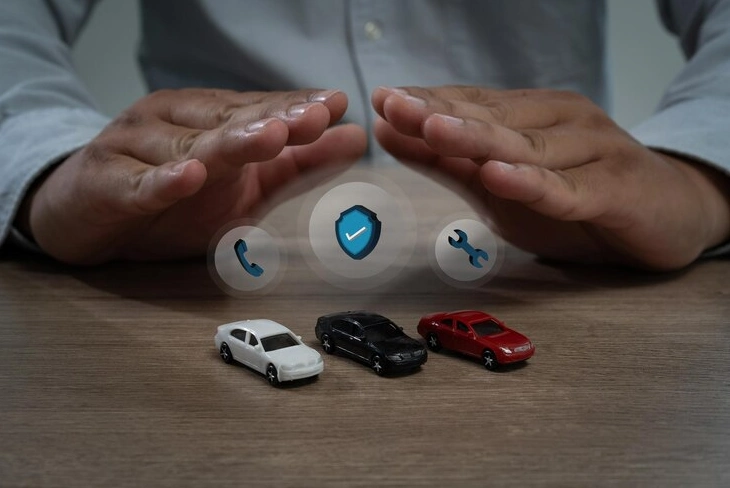Owning a car is a significant investment and a symbol of freedom and convenience. Whether you’re a first-time buyer or a seasoned driver, the process of purchasing and maintaining a vehicle can be daunting. This comprehensive guide aims to equip you with the knowledge and tools necessary to navigate the intricate world of car ownership seamlessly.
Overview
Cars have become an integral part of our lives, enabling us to commute, explore, and embark on adventures. However, the journey of car ownership extends far beyond the initial purchase. Proper maintenance and care are crucial to ensure your vehicle’s longevity, safety, and overall driving experience. This article will delve into the essential aspects of buying and maintaining your car, providing you with valuable insights and practical tips to make informed decisions.
Understanding Your Needs Before Buying

Before stepping into the world of car ownership, it’s vital to assess your unique needs. Factors such as your budget, lifestyle, and usage patterns play a pivotal role in determining the right vehicle for you. Asking yourself questions like “How many passengers will I typically transport?” or “Will I be driving primarily in the city or on highways?” can help narrow down your options.
“Choosing the right car starts with understanding your unique needs.”
Taking the time to evaluate your requirements will not only save you from making an impulsive decision but also ensure that your car purchase aligns with your practical and financial considerations.
Researching and Selecting the Right Car
With countless car types, brands, and models available in the market, conducting thorough research is crucial. Start by exploring various options that meet your needs and preferences. Consult trusted sources, read professional reviews, and seek advice from knowledgeable friends or family members. Test drives are also invaluable, as they provide a first-hand experience of a vehicle’s performance, comfort, and handling.
When evaluating potential cars, consider factors such as fuel efficiency, safety features, and maintenance costs. These factors can significantly impact your overall ownership experience and long-term expenses. Additionally, research the vehicle’s reliability and resale value to ensure a wise investment.
Financing Your Purchase
Once you’ve identified the car of your dreams, it’s time to explore financing options. Many buyers opt for car loans or leasing agreements, which require a thorough understanding of interest rates, loan terms, and monthly payments. Additionally, dealerships often offer financing packages, which can be convenient but may require scrutiny.
Budgeting and understanding the total cost of ownership, including insurance, maintenance, and fuel expenses, is paramount. Negotiating the best deal and avoiding common pitfalls, such as extended warranties or unnecessary add-ons, can save you a significant amount of money in the long run.
Maintenance Tips for Longevity
Regular maintenance is the key to ensuring your car’s longevity and optimal performance. Neglecting routine tasks like oil changes, tire rotations, and fluid checks can lead to costly repairs and shorten your vehicle’s lifespan. Adhering to the manufacturer’s recommended maintenance schedule is essential, and keeping detailed records can help you stay on top of upcoming services.
Here’s a table outlining a typical maintenance schedule based on mileage:
| Mileage | Recommended Maintenance |
|---|---|
| 5,000 | Oil and filter change, tire rotation, fluid checks |
| 15,000 | Replace cabin air filter, inspect brakes and suspension |
| 30,000 | Replace engine air filter, check drive belts and hoses |
| 60,000 | Replace spark plugs, inspect timing belt/chain (if applicable) |
| 100,000 | Replace coolant, transmission fluid, and brake fluid |
Remember, timely maintenance not only extends your car’s life but also enhances its resale value and overall reliability.
Dealing with Repairs and Emergencies
Despite your best efforts, cars can sometimes experience unexpected issues or breakdowns. Being prepared for such situations is crucial. Start by familiarizing yourself with common car problems and their potential causes, such as strange noises, warning lights, or decreased performance. Knowing how to diagnose and address these issues can help you take appropriate action.
Finding a reliable and trustworthy mechanic is also essential. Seek recommendations from friends, family, or online reviews, and don’t hesitate to get a second opinion for major repairs. Understanding repair costs and being aware of potential scams can help you make informed decisions.
Additionally, keeping an emergency kit in your car is a wise precaution. This kit should include essentials like a first-aid kit, jumper cables, a flashlight, and basic tools, ensuring you’re prepared for any roadside emergencies.
Ensuring Safety and Insurance

Safety should be a top priority for every car owner. Maintaining your vehicle in top condition, adhering to traffic laws, and avoiding distractions while driving are crucial steps to protect yourself and others on the road. Regular safety inspections and promptly addressing any issues, such as faulty brakes or worn tires, can prevent accidents and save lives.
Furthermore, having adequate car insurance is not only a legal requirement but also a safeguard against financial burdens in case of an accident or theft. Explore different coverage options, such as liability, collision, and comprehensive insurance, and choose a plan that suits your needs and budget.
According to statistics from the National Highway Traffic Safety Administration (NHTSA), over 36,000 people lost their lives in car accidents in the United States in 2022. By prioritizing safety and maintaining a clean driving record, you can minimize the risk of accidents and keep your insurance premiums low.
Conclusion
Owning a car is a significant responsibility that requires careful consideration and ongoing maintenance. By following the guidelines outlined in this article, you can navigate the process of buying and maintaining your car with confidence. Remember to assess your needs, research thoroughly, prioritize safety, and stay on top of routine maintenance. With the right approach, your car can become a reliable companion for years to come, providing you with the freedom and convenience you deserve.
As you embark on this journey, keep in mind that car ownership is an ongoing process. Staying informed, being proactive, and making wise decisions will not only enhance your driving experience but also contribute to the longevity and value of your investment.
Stay ahead of the curve with the latest trends and insights by visiting mashmagazine.co.uk – your ultimate destination for all things culture, innovation, and style.